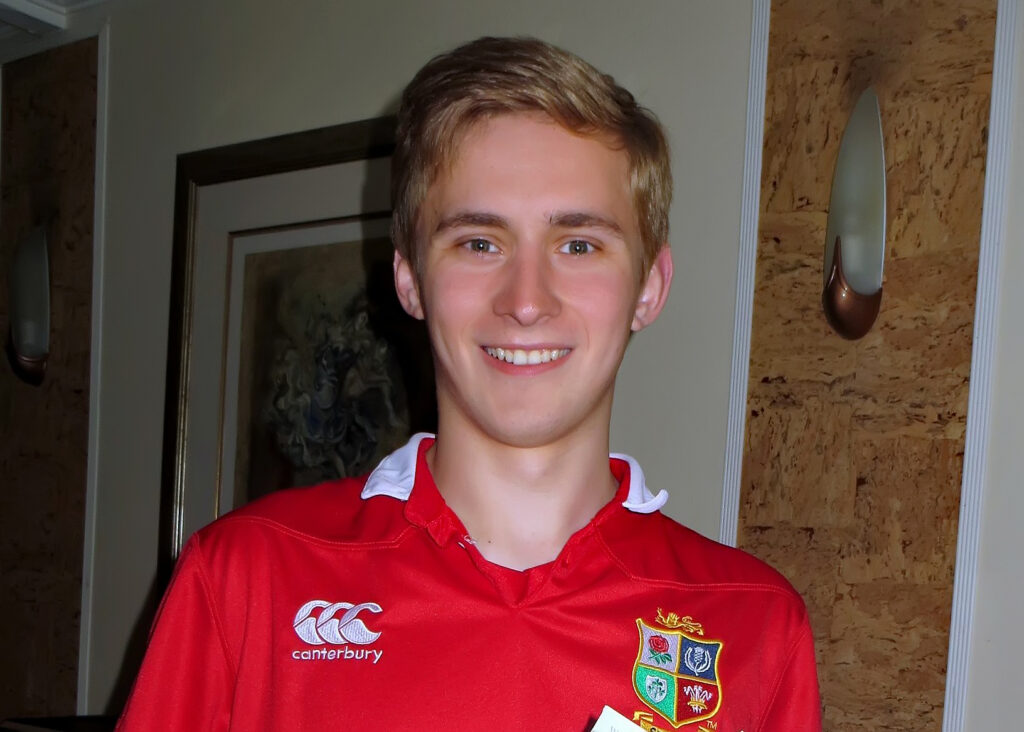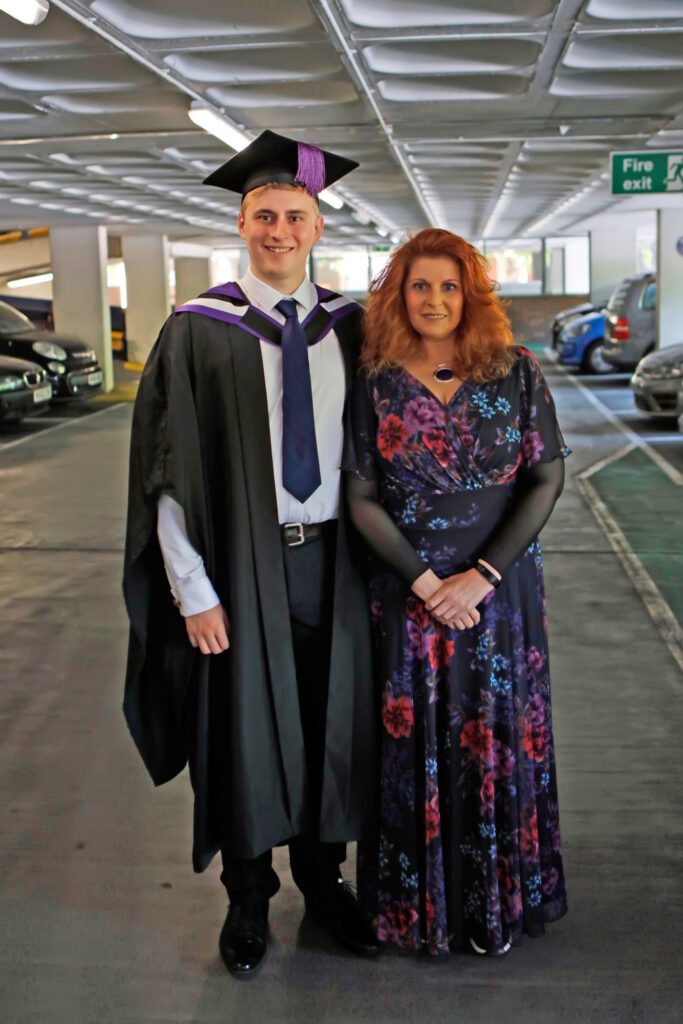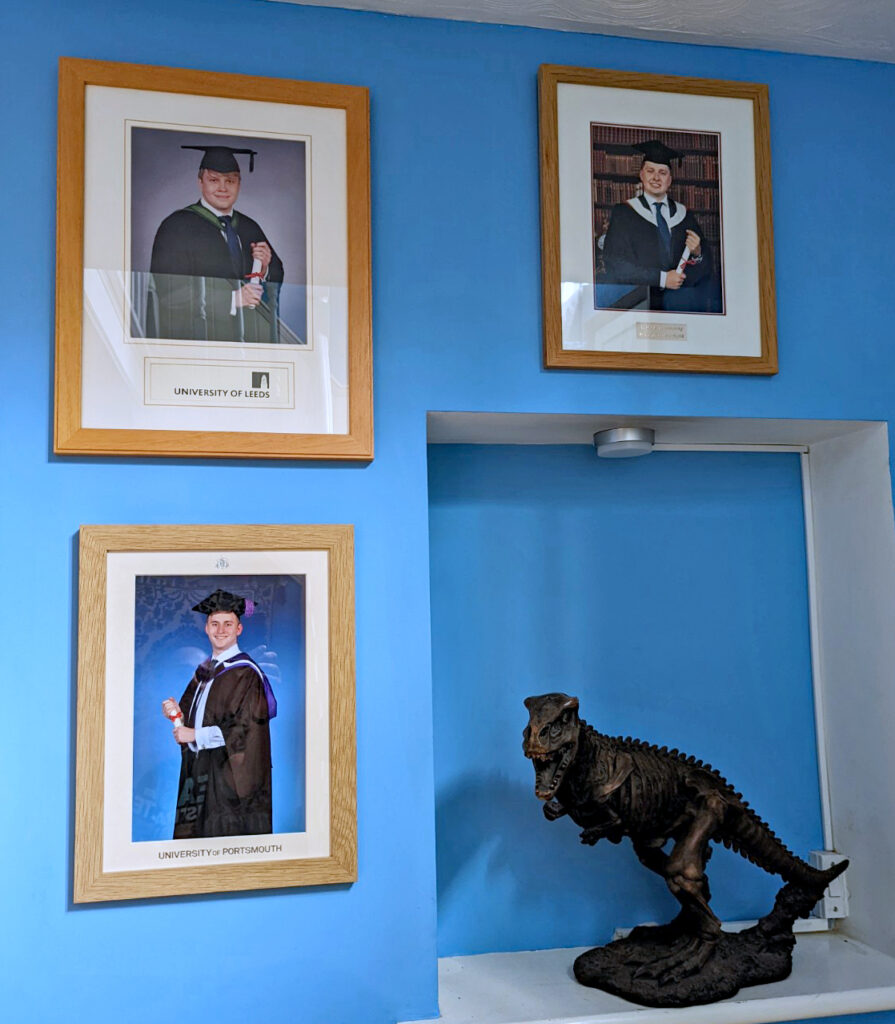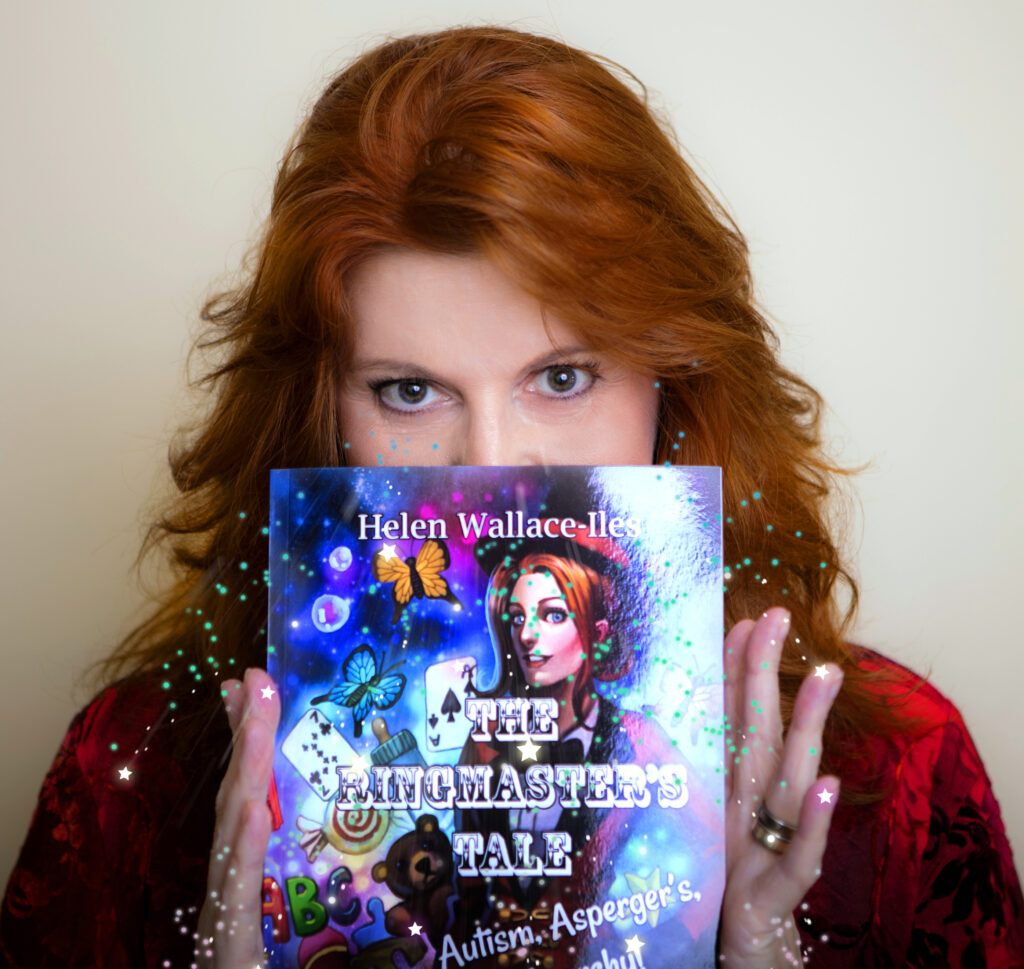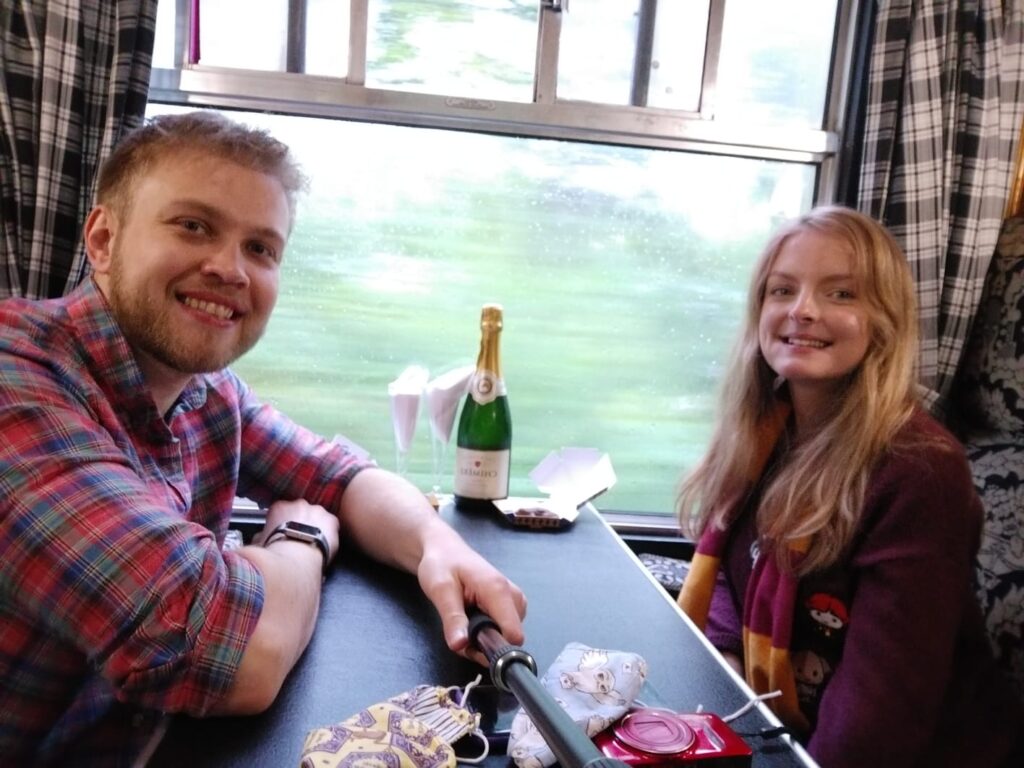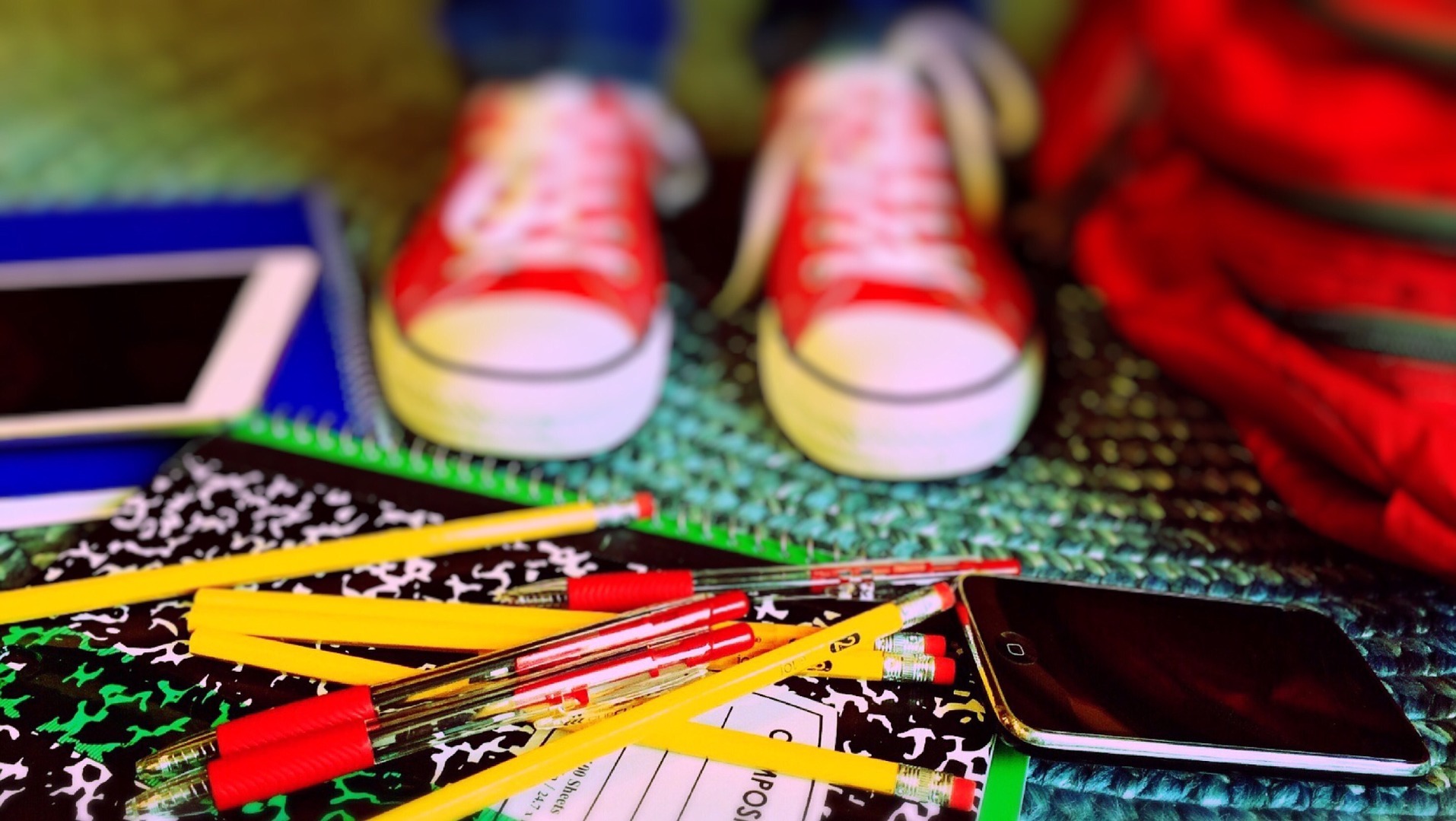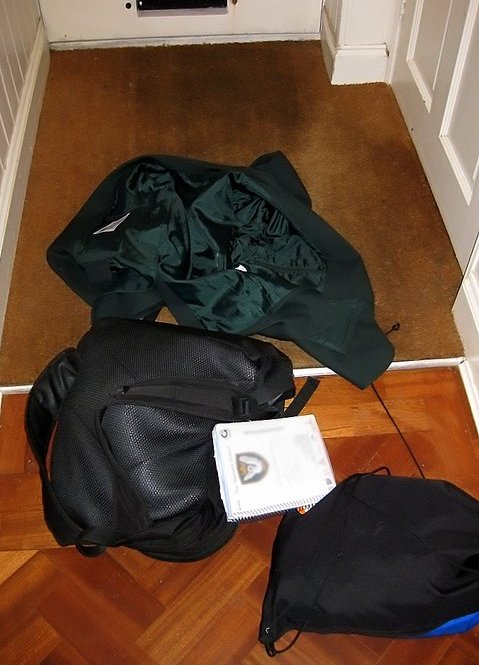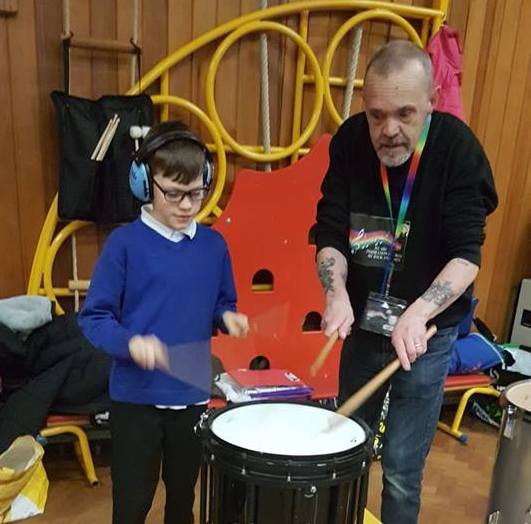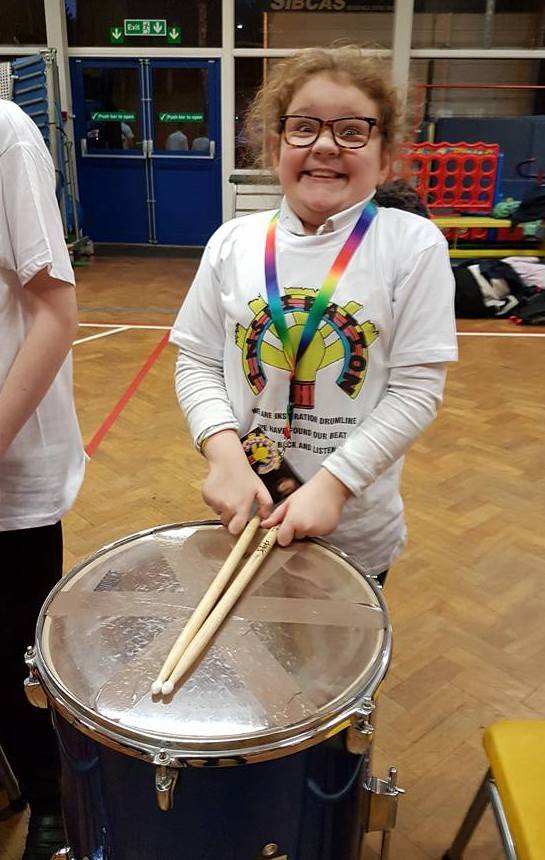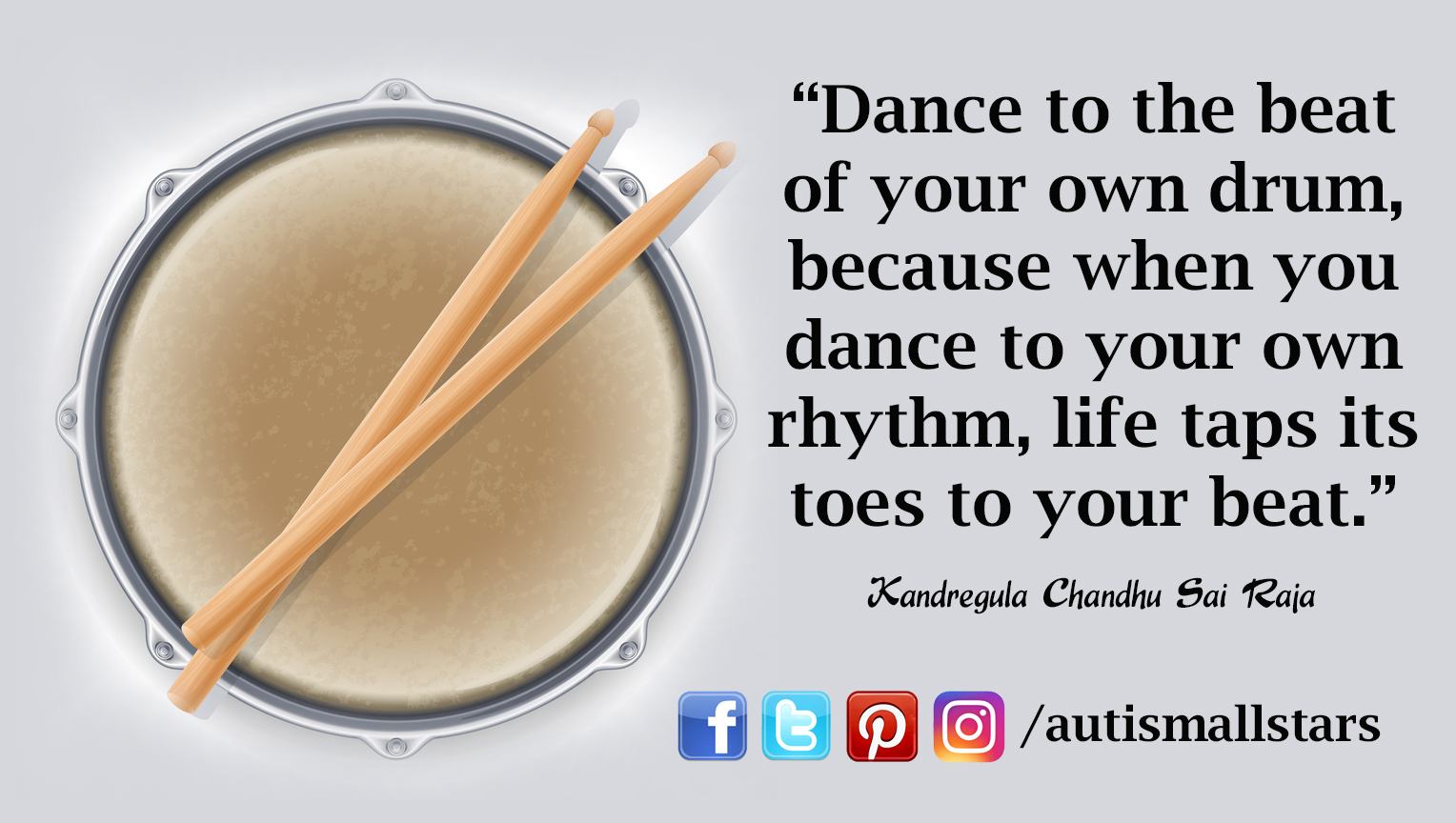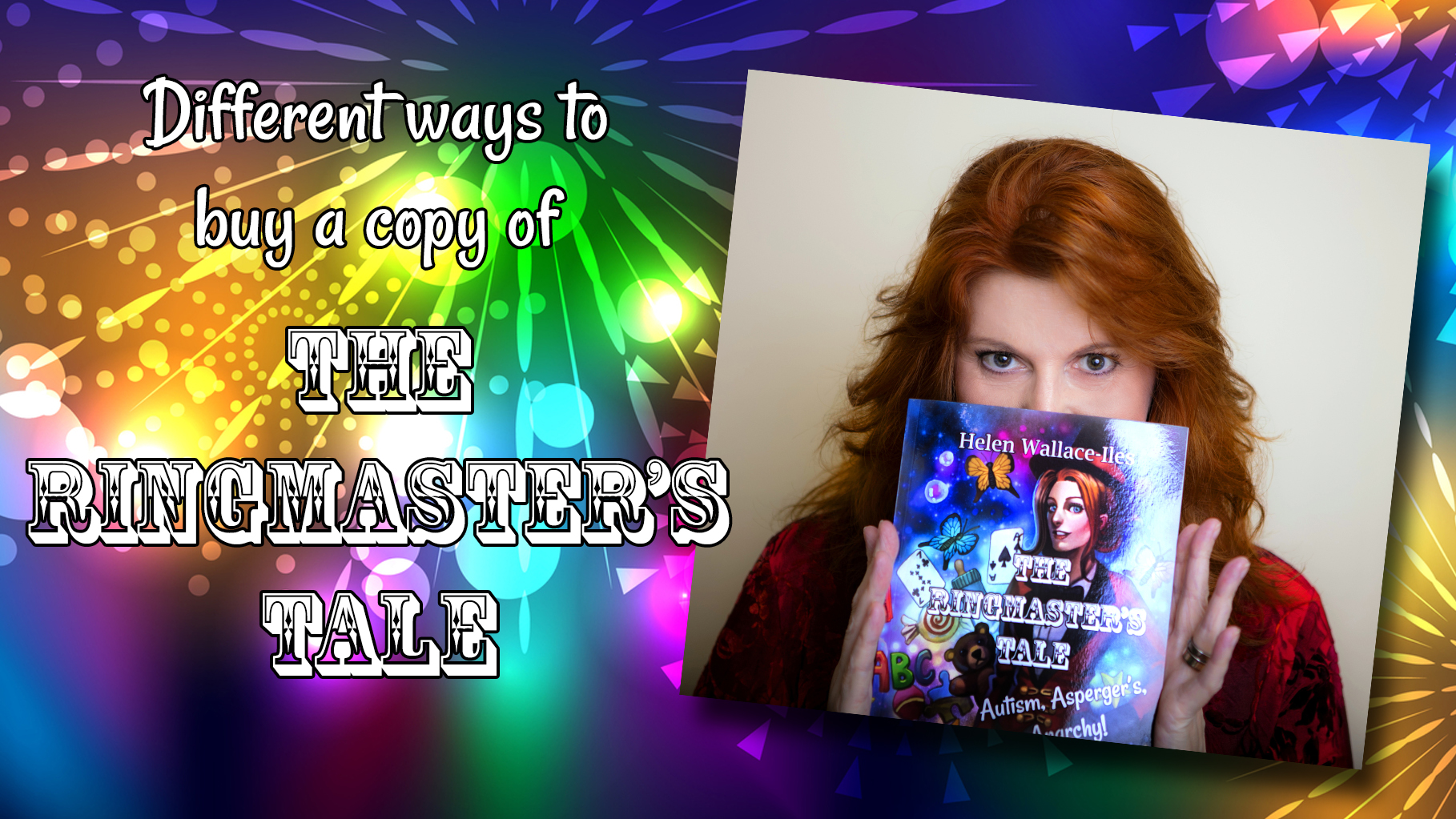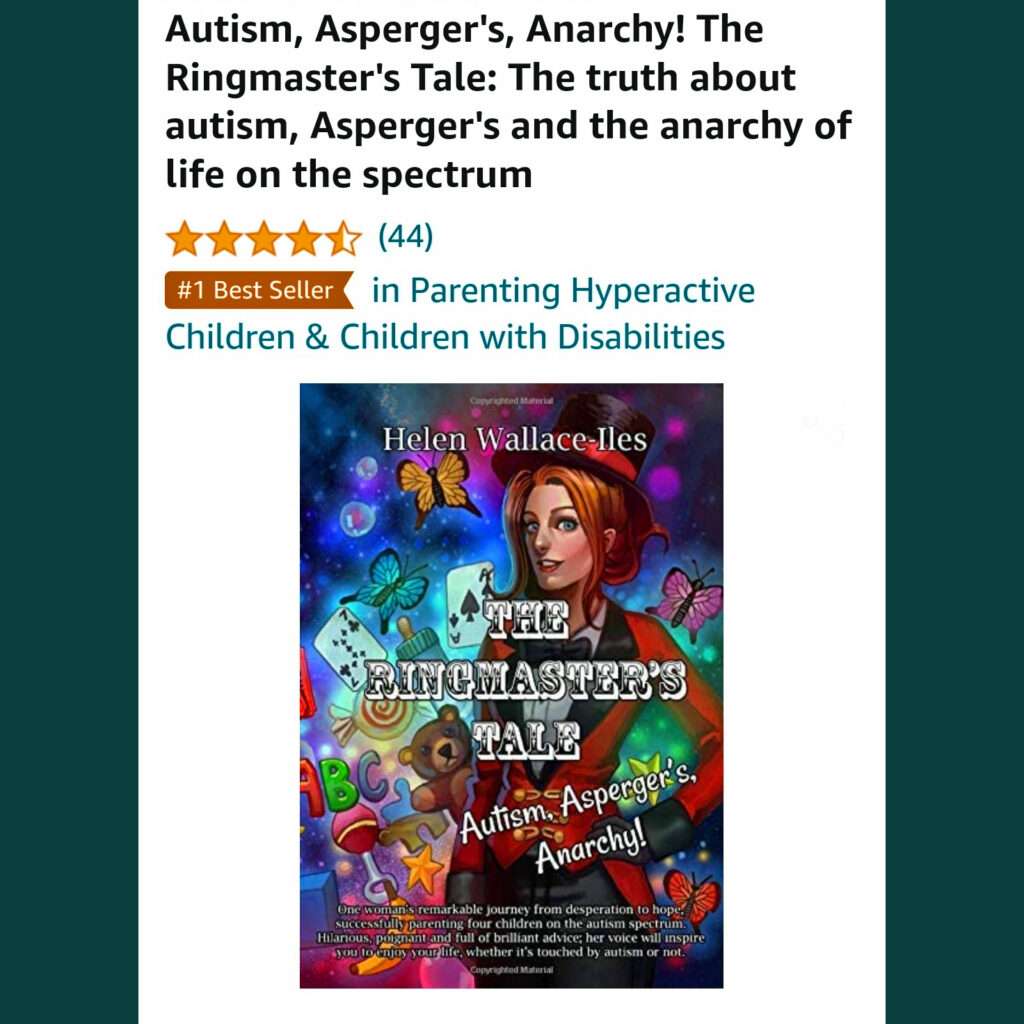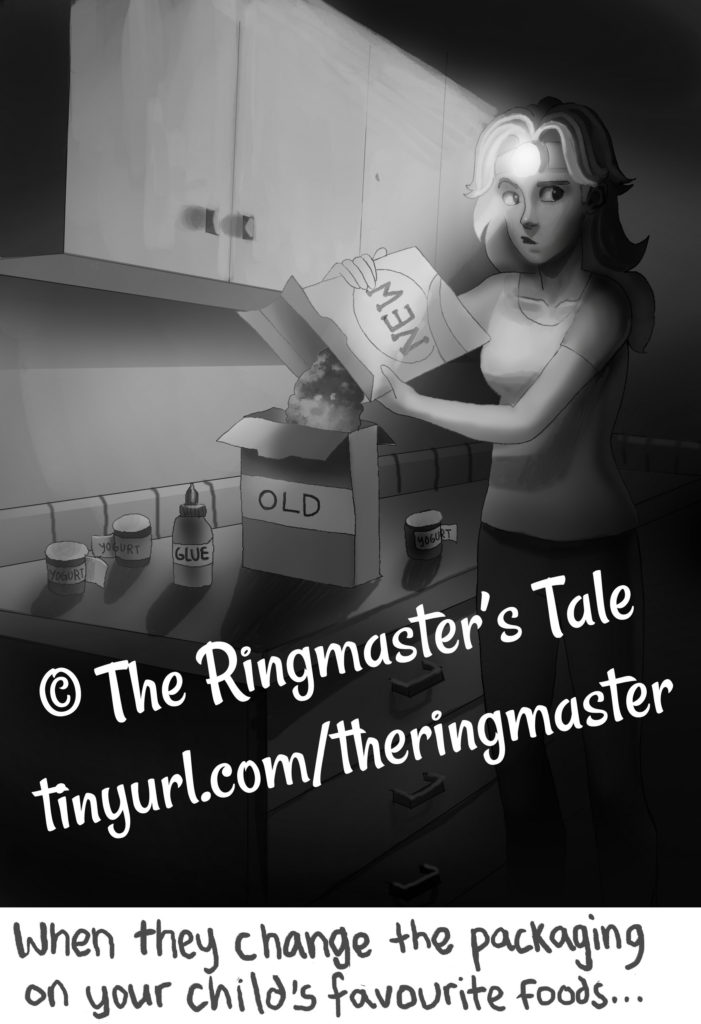
Great advice for enjoying Christmas with your autistic loved ones, from Amazon Number One Bestselling author Helen Wallace-Iles.
‘Tis the season for sparkly decorations and festive music in shops; for school nativity plays, visits to relatives and the excitement of opening presents on Christmas morning.
While for most children these things bring a sense of anticipation, magic and wonder, for autistic children they can just as easily trigger confusion, sensory overload and full-blown meltdowns.
But fear not, autism parents, for I bring tidings of comfort and joy! Well, okay, I bring my top ten tips for an autism-friendly Christmas, but I’m sure they’ll bring a bit of comfort and spread a bit of joy in their own way, so it’s kind of similar.
While I appreciate these tips won’t work for everyone, I’m hoping they’ll give you all some ideas and inspiration to make your holiday season go a bit more smoothly, so without further ado, here they are…
1. Be good to yourself
I’m not suggesting you start taking long baths or even put your feet up once in a while – I have four autistic children so I’m definitely aware this isn’t an option, particularly during the holidays.
What I’m talking about here is the importance of understanding how it’s perfectly okay to feel upset, disappointed, frustrated and sad when you think about all the traditional Christmassy things you’d like to do but can’t because your child is autistic.
Lots of parents I’ve spoken to beat themselves up about feeling this way – as if they’re somehow betraying their autistic child and wishing they were someone they’re not – but that’s not what’s going on here at all.
The truth is that it’s completely reasonable to expect that when you have a child, they’ll understand what Christmas is all about, know who Santa Claus is, enjoy opening piles of presents on Christmas morning and eat Christmas dinner with the rest of the family, so feeling a sense of loss when these things don’t happen is absolutely normal.
Far from being a sign that you don’t like or accept your child as they are, it’s more a case of wishing your child could share the joy that other people do at this time of year, and that just shows how much you love them and care about their happiness, so please remember to cut yourself some slack over this and allow yourself to feel down sometimes if you need to.
On a positive note, there are now more festive traditions that autistic children (and adults) can join in with than ever before.
When my boys were young there was no chance of taking them to the pantomime or visiting Father Christmas at the shopping centre, but thanks to an increasing number of relaxed performances and sensory-friendly grottos, all that is changing and autistic people are now being accommodated more than I could ever have imagined all those years ago.
2. Focus on what’s staying the same
Although it’s very tempting to focus solely on what’s going to be different at Christmas – and preparing your child for the things that are going to change is hugely important – always remember to focus on everything that’s staying the same.
Remind them that even though their family members might be wearing unusual or brightly coloured clothes, they’re still the same people on the inside, and still love them just as much.
Explaining why people dress up in sparkly dresses and silly jumpers at Christmas will help a lot. Depending on your child’s level of curiosity (and if they’re anything like my children they’ll want to know EVERYTHING) you can explain the origins of the tradition, when people dressed this way to bring light and colour to what was seen as an overwhelmingly dark, grey season; or you can stick to something simpler and tell them people like to dress up because they’re happy that their family members are getting together and the silly jumpers make them laugh.
If you can, get them to play the ‘What’s Staying the Same?’ game, and start with the basics like ‘the sky will still be blue’ or ‘I will still be a human’. Explain how funny it would be if everything had to change just because it was Christmas, and they somehow ended up being a dog! Anything that gets them laughing about the situation will ease the tension no end.
If they’re visual learners, draw or print out pictures of everything you’ve discussed and make a collage they can use to help get the changes into perspective.
I’ve met many parents over the years who feel it’s best to ignore changes and not make a fuss about them, thinking their child will just take it in their stride if they play things down, but that’s definitely not the route I’d take.
Any unexpected changes will disrupt an autistic person’s routine and can make them feel wildly out of control, so reassuring them in whichever way works best for them is vital for their peace of mind. Using social stories and visual timetables to explain things can really help with this process too.
3. Explain, explain, explain
However you celebrate Christmas, or even if you don’t celebrate it at all, your child is bound to see a lot of Christian references when they’re out and about.
From choirs singing carols to endless images of a baby in a manger, the sudden appearance of Christmas symbolism everywhere can be very confusing if you’re not sure what’s going on.
I’d suggest investing in a simple picture book about the nativity and keeping your explanation about why we celebrate on December 25th very straightforward.
Something along the lines of ‘Jesus said we should all love one another, so lots of people like him and celebrate his birthday on that day’ keeps religion out of it if you’re not that way inclined, while still explaining the basics.
Another thing worth talking about is why we have a Christmas tree inside the house and why we put lights on it. When you think about it, suddenly finding a brightly-lit tree standing in your front room must seem quite bizarre if you don’t know why it’s there or where it’s come from.
There are lots of articles explaining where the tradition started and what it represents, so if you’d like to find out more, Wikipedia’s article is a pretty good place to start.
If you’re religious there’s obviously a lot more to it, but if not, keep things simple: ‘Fir trees are green all year round so they remind us that even in the winter things are still alive and growing, and lights remind us that although it can get very dark at this time of year, the sun will always rise in the morning to light our way.’
4. Spread the joy
Christmas advertising seems to start earlier every year, but as a general rule, things still go into overdrive around the start of December. There’s no right time to start preparing your child though, so it’s worth checking with their school to find out when their celebrations begin, and use that as a rough guide.
Rather than making your child wait for Christmas day, it might be a good idea to spread the joy by making it Christmas week, Christmas fortnight, or even Christmas month in your house, and leaving them a present under the tree every morning.
Chances are that if they get all their gifts at once they’re going to be overwhelmed and nothing will get played with anyway, whereas having one a day means they’ll have time to explore and enjoy them all at their own pace.
Make sure your child understands that once Christmas is over they won’t keep getting a present every day though. You could use an advent calendar to help illustrate this if you’re doing it over the course of December, or perhaps take the tree down to show that things have gone back to normal.
However you do it, please give them plenty of warning that the gifts are going to stop, otherwise they could become very upset. Visual timetables and calendars are definitely your friends here.
5. Decorate at your own pace
While my children love to put up yards of tinsel, fairy lights and anything else they can distribute round the house or cram onto the tree, for lots of autistic people this sudden burst of colour and light can cause a serious amount of sensory overload.
If this is a challenge for you then decorate the house as slowly as you need to. Displaying Christmas cards as they arrive is a great way to start celebrating gradually, and using paper-chains instead of tinsel can really reduce the amount of sparkling light your child has to process.
When it comes to the tree, consider making the fairy lights static rather than twinkly or alternatively don’t have lights at all, and instead make your own decorations that you can add to year after year.
6. Get to know each other
Put together a photo album of relatives you’ll be meeting over Christmas and include a bit of information about what their names are and how they’re related to you.
Make it clear to everyone that your child might not want to be hugged or might hug a bit too much. Explain why they won’t eat the same food as everybody else – that they’re not just being picky, they have a genuine physiological reason why they can’t do it – and why they’re unlikely to dress up in scratchy new clothes for the day.
Most importantly make sure no-one scolds your child for their behaviour, and let your relatives know that if they’ve got any questions, you’d be only too happy to answer them – preferably out of your child’s earshot. Just for the record: if you can get through the holidays without anyone giving you unwanted parenting advice then you’re doing better than I ever have.
7. Remember your survival strategies
Walking into a house full of tipsy relatives can be terrifying if you’re on the spectrum (and even if you’re not) so when you’re visiting, it’s best to arrive before everyone else if you can. Talk about ‘safe zones’ with your child and explain how they can always retreat somewhere if things get too much, even if it just means sitting outside in the car for a while.
Take a pack of familiar things with you too – trust me, doing this can be a real life-saver. I list a full ‘Survival Kit for Days Out’ in my book which includes, among other things, a visual timetable, your child’s preferred foods, their own cutlery and crockery, fidgets, a small weighted blanket, a phone or tablet (with charger and spare batteries), sunglasses, ear defenders or an iPod with earbuds, and a hoodie or hooded coat/cardigan to create a kind of portable safe space.
It’s also a good idea to record your contact details for them to carry in some way in case they wander off, and take a basic first aid kit for the inevitable bumps and bruises.
Last but not least: take some bribes! Be prepared with some of their favourite things to offer as rewards for good behaviour or in the case of an emergency.
8. Practice some give and take
Autistic people can be incredibly blunt if they don’t like a present and this can be very hurtful to relatives who don’t know them well. To minimise the risk of this happening, ask people to buy your child sensory toys if possible. There’s no guarantee they’ll buy the right ones of course, so preparation is key when it comes to the giving and receiving of gifts.
The idea that the thought behind a gift is more important than the gift itself can be a really tricky thing for an autistic person to grasp, so if this is too abstract for them, just focus on something else.
Social stories can be very useful for explaining how it feels when your gift is rejected, as well as learning why saying thank you and being polite are so important.
If your child struggles with this, it might be a good idea to explain it by pointing out that just as stimming makes them happy, but seems confusing to other people, manners make other people happy even if they’re a bit difficult to understand.
9. Keep a sense of humour
Remember to laugh about the funny moments that will inevitably happen when your child is autistic. It’s a great way to relieve tension and it doesn’t mean you’re laughing at them, just that you’re enjoying and celebrating their uniqueness.
For instance, forget about them eating Christmas dinner or dressing up to be in the annual family photo, and instead accept with a smile that when your relatives share their pictures on Facebook, your child will be the one holding a McDonald’s Happy Meal while dressed as Batman.
10. Practice painless unwrapping
If your child hates surprises, opening presents can be a real challenge. To help overcome this you could put a picture on the outside of their gifts showing them what’s inside, or even leave them unwrapped. Whatever you do, make sure everything has been removed from its packaging, because wrestling toys from their plastic and cardboard prisons can be virtually impossible even if you don’t have manual dexterity problems.
Also, if anything needs batteries, make absolutely sure they’re already in place and every item is in good working order.
Lastly, if you have decided to give your child everything on Christmas morning, don’t insist they open all their presents at once. If they decide to open one a week and Christmas ends up lasting ‘til July, who cares? Like I said before: spread the joy, people!
And finally…
Remember what Christmas is really about
In the end, the most important part of making your Christmas autism-friendly is to remember what it’s really about: sharing love and being grateful for what you’ve got; and the easiest way to do that is to simply accept your child – and yourself – exactly as you are.
Recognise that the way you celebrate will be as unique as everything else you do, so not everyone will understand it, but that doesn’t make your experiences any less valuable.
Whatever happens, always remember that an autistic life, however extraordinary, is very much a life worth celebrating, and that applies not just at Christmas, but all year round.




